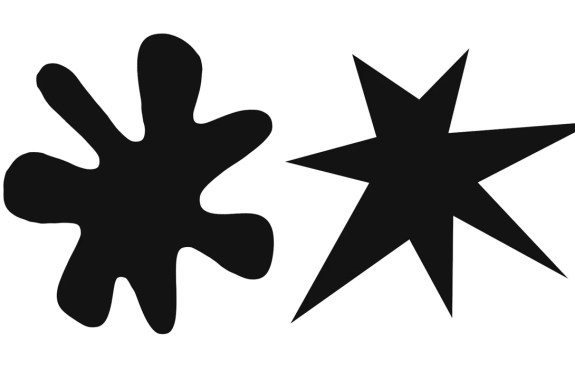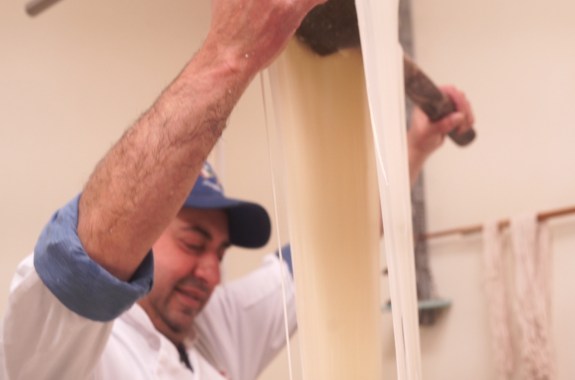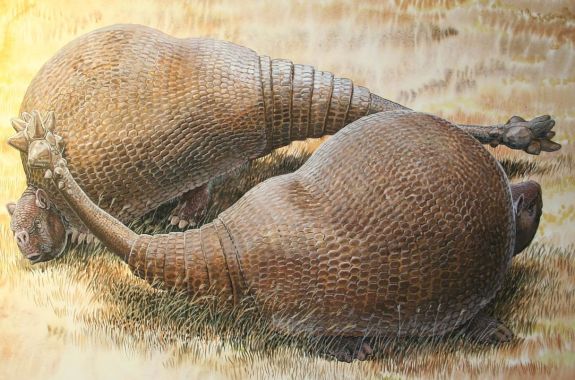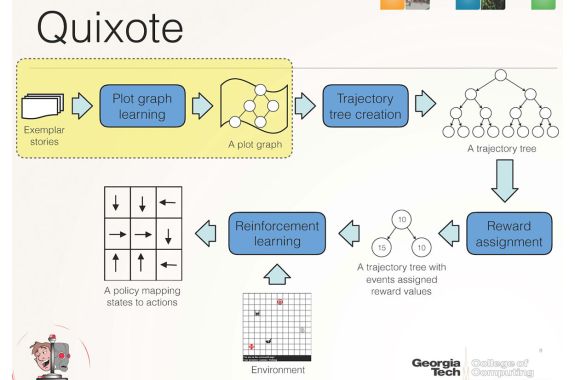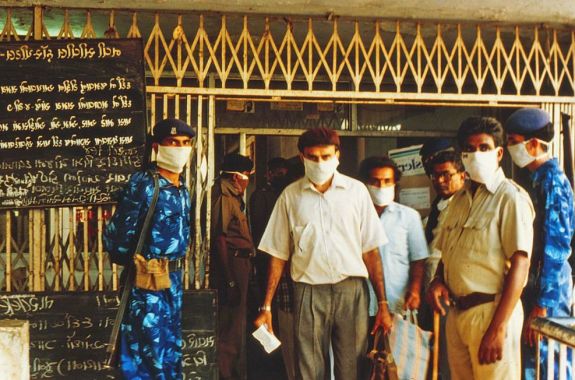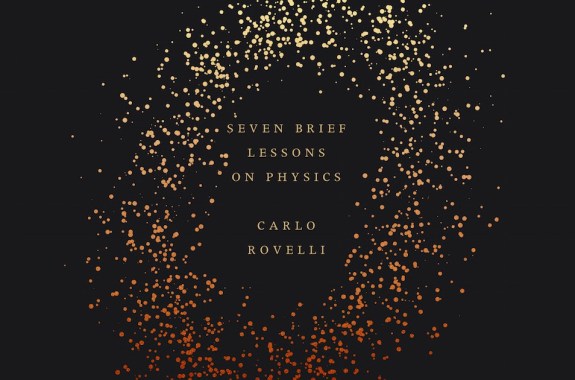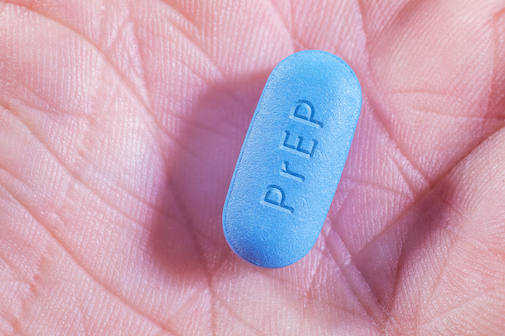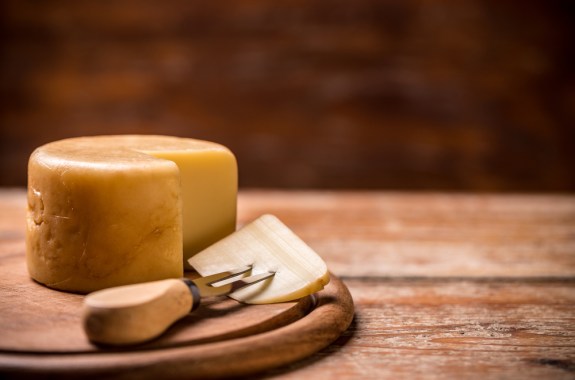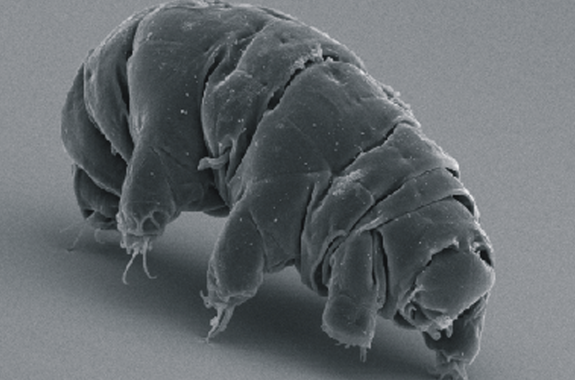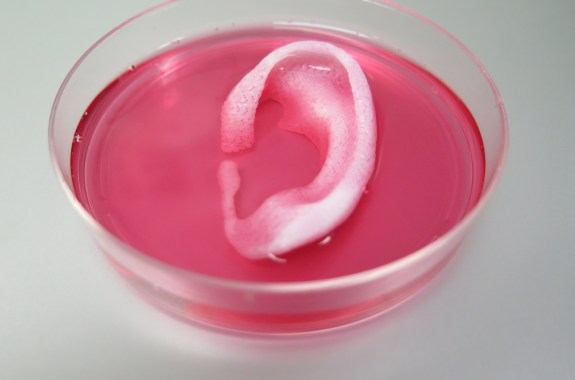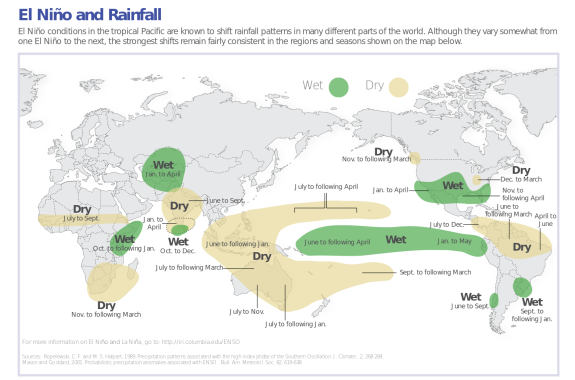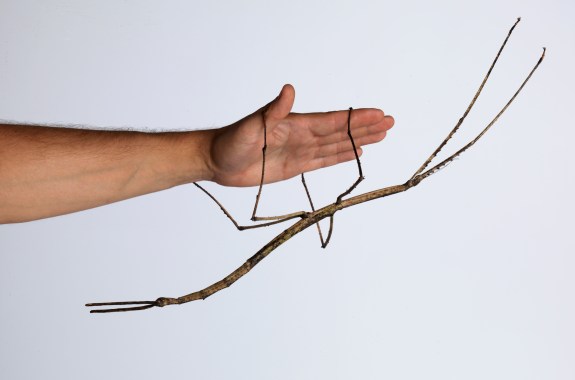On Today's Podcast
Slow Release Of Federal Science Funds Holds Up Research
Some money allocated for scientific research has been restored to the federal budget, but the White House OMB has been slow to release it.
Listen NowFebruary 27, 2026
A new simulation shows large amounts of hydrogen in our planet’s core. Scientists report on what they found in 290-million-year-old vomit. Plus, a comedic play and a 20-year neurology study explore what we can do to prevent dementia and cognitive decline. And, a federal law aims to close the legal loophole that lets stores sell THC products from hemp.
Here’s How OK Go Made That Zero-G Music Video
The band worked with cosmonauts from Russia’s space program, a Russian airline, a large crew, and several aerialist acrobats.
Media Guide: The Bouba-Kiki Effect
The Bouba-Kiki effect describes the tendency of people to identify certain sounds with specific types of shape. Students will test out the Bouba-Kiki Effect, learn about current research, create their own sound-shape pairings based on the theories behind the Bouba-Kiki effect, and evaluate different explanations for the effect based on their observations.
The Maestro of Mozzarella
With 30 years of experience, Orazio Carciotto has learned that mastering the flavor and texture of this silky smooth cheese requires a deft (and burn-resistant) hand and a mastery of milk curd chemistry.
11:53
HIV Prevention, Ancient Armadillos, and Direct-to-Consumer Drug Ads
An HIV prevention tool specifically developed for women. And the potential side effects of direct-to-consumer drug ads.
27:22
A Brief, Poetic Tour of Modern Physics
Theoretical physicist Carlo Rovelli explains the fundamentals of modern physics in just 80 pages, in his Seven Brief Lessons On Physics.
12:03
Storytelling Teaches Robots Right and Wrong
How do you teach robots to behave ethically? One way is to feed robots human stories, and train them to model their behavior after the tales’ protagonists.
6:48
How Can Virtual Reality Plug In to Social Media?
More immersive media could help us forge deeper digital and real-world connections.
34:06
Forecasting The Future Of Pandemics—In 1994
In 1994, Laurie Garrett and Stephen Ostroff came on Science Friday to contemplate some troubling trends in public health. Twenty-two years later, they’re back for a check-up.
What Are the Basic Foundations of Modern Physics?
A preview of what to expect from “Seven Brief Lessons on Physics.”
Are We Getting Closer to the ‘Death’ of Cancer?
There have been many exciting developments in cancer treatment in recent years.
Media Guide: HIV Prevention With PrEP
Use this classroom resource to have your students learn about PrEP, an HIV prevention treatment that is the subject of a recent study in the Netherlands. Discuss implications of PrEP on the spread of HIV with this audio segment from Science Friday.
Ched Talks: The First-Ever SciFri Wine and Cheese Night
Come join Ira and members of the SciFri staff for an exclusive night on the science of cheese.
11:45
Forecasting Financial Crises, Thawing Water Bears, and the Pros of a Big Deductible
Economists look to ecology for inspiration. Plus, the good and bad of a high deductible on your health care plan.
25:16
Can Silicon Valley Bridge Its Diversity Gap?
More tech companies are pledging to increase diversity in their workforce, but their employee numbers remain the same.
8:42
3-D Printing Living Cells
Scientists used living cells to 3-D-print ear, bone, and muscle structures.
11:45
When Hospitals Get Hacked
A Hollywood hospital’s computer systems were invaded by malware, encrypted, and taken for ransom. The price? Forty bitcoins, or $17,000 dollars.
7:28
Malnutrition, and a Battle of the Microbiota
Is malnutrition due to more than just a lack of access to quality food? A “battle of the microbiota” taking place in the gut may play a significant role in health.
26:37
What El Niño Means for Other Parts of the Planet
El Niño’s atmospheric influence is global, affecting fish stocks off Peru and potentially driving up malaria deaths in East Africa.
Behold, The Gargantuan Stick Insect
Only three female Ctenomorpha gargantua stick insects have ever been seen in the wild.

